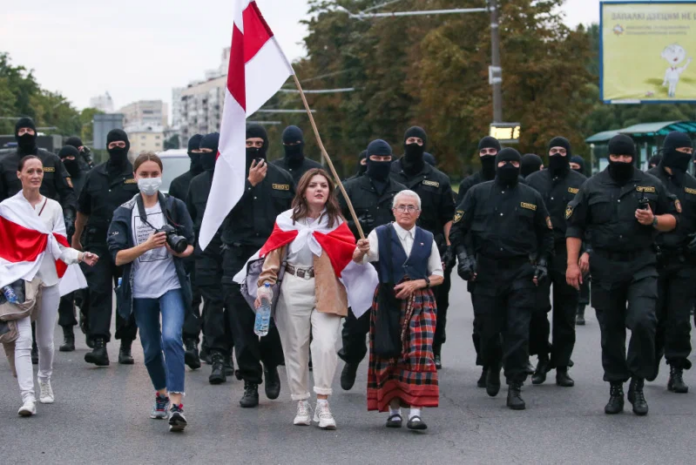By Seth Gellman
Source: TASS
Belarus, a former Soviet republic bordering Russia, has been experiencing turmoil since the reelection of President Alexander Lukashenko on August 9th. A poll declared Lukashenko’s victory in the August 9th election, which some claimed was illegitimate. Lukashenko has been in power for 26 years, leading many to be dissatisfied and looking for a change in leadership.
There have been protests every Sunday for every week since the election on August 9th. The European Union and U.S. State department have both claimed that the elections are fraudulent, giving the protestors concerns. Lukashenko has tried to crackdown on these protests, which seems to only fuel the protestors. The majority of the protests have taken place in the capital of Minsk with over 100,000 people showing up to protest.
Lukashenko has accused Western powers of starting these protests to overthrow the government. The opposition claims to be pro-democratic, and does not take a stance on whether they support Russia or not. Whether Putin decides to back them or not may sway support for the protests.
Months before the election, authorities jailed or prevented several opposition leaders from running. Many have fled the country in order to not become jailed by the government.
The U.K. and Canada imposed travel bans and asset freezes on Lukashenko and many top officials.
A 73 year old woman, Nina Baginskaya, has become a symbol of the movement. As she protests with the Belarusian national flag, considered a symbol of national opposition by Lukashenko, she inspires many around the country. She thinks that the police have become increasingly worse and more authoritative. She is optimistic that the protests will work.
Lukashenko is cracking down more on protests and the opposition shows no sign of slowing down. The government is getting pressured through sanctions by many Western nations to give in to the protestors. With so much pressure on Lukashenko and top officials, their next move is going to change the course of the Eastern European nation.










